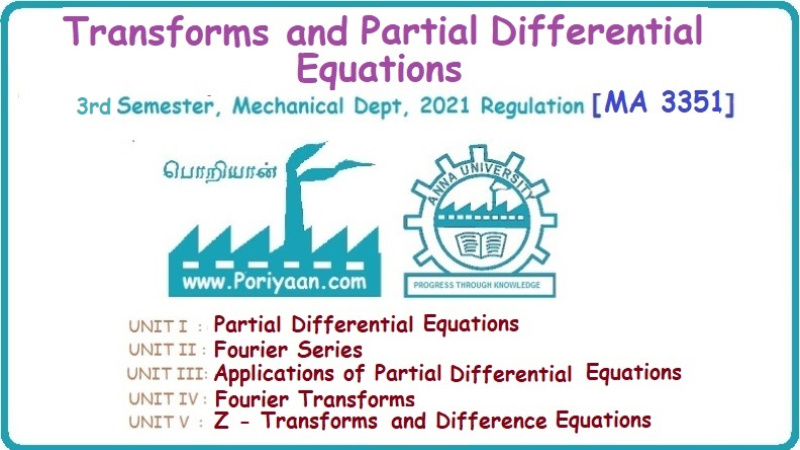Transforms And Partial Differential Equations: UNIT IV: Fourier Transforms
Problems based on Fourier Transform [Complex Fourier Transform]
Examples
Transforms And Partial Differential Equations: UNIT IV: Fourier Transforms: Examples
II. (a) Problems based on Fourier
Transform [Complex Fourier Transform]
Formula
:

Example
4.2.a(2): Find the Fourier Transform of
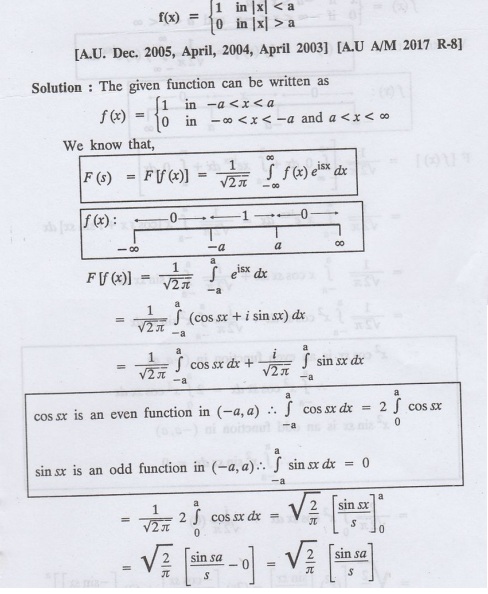
Example
4.2.a(3) Find the Fourier transform of f (x) given by

Example
4.2.a(4): Show that the Fourier Transform of e 
(OR)
Show
that ![]() is self-reciprocal
with respect to Fourier Transform.
is self-reciprocal
with respect to Fourier Transform.
Solution
:
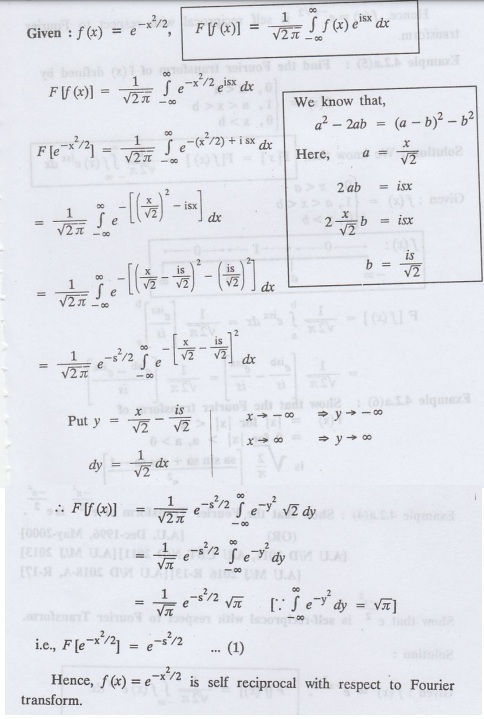
Example
4.2.a(5): Find the Fourier transform of f (x) defined by

Example
4.2.a(6): Show that the Fourier transform of

Example
4.2.a(7): Find the (complex) Fourier transform of

Example
4.2.a(8): Find the Fourier transform of 

Example
4.2.a(10) : Find the Fourier transform of e-a2x2, a > 0,
Hence,
show that e is self reciprocal under Fourier transform.

Example 4.2.a(11): Find the Fourier transform of Dirac delta function δ (t- a).

II.
(b) Problems based on Fourier transform and its max inversion formula
Formula
:

Example
4.2.b(1): Find the Fourier transform of the function


Example
4.2.b(3): Find Fourier Transform of e a- |x| and hence deduce that

Example
4.2.b(4): Find the Fourier transform of e-a- |x| and hence find the
fourier transform of e- |x| cos 2x

II.
(c) Problems based on inversion formula, Parseval's identity and Convolution
theorem
Formula
:

Example
4.2.c(1): Find the Fourier transform of  where a is a positive real number.
where a is a positive real number.


Example
4.2.c(2): Find the Fourier Transform of

Example
4.2.c(3): Show that the Fourier transform of


Example
4.2.c(5): Find the Fourier transform of
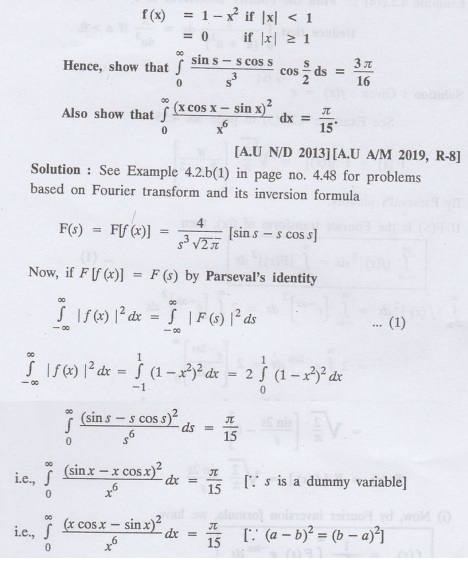
Example
4.2.c(6): Find the Fourier transform of f(x) given by

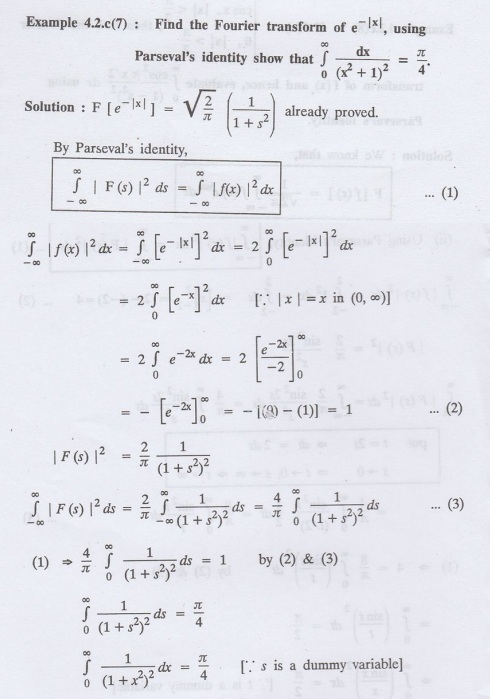

Example
4.2.c(9) : Verify convolution theorem for f(x) = g(x)=e-x2
Definition:
Convolution theorem for Fourier transforms. The Fourier
transform of the convolution of f (x) and g (x) is the product of their Fourier
transforms.
F [f(x) *g(x)] = F {f(x)} F {g (x)}
Given: f(x) = g(x) = e x2

Transforms And Partial Differential Equations: UNIT IV: Fourier Transforms : Tag: : Examples - Problems based on Fourier Transform [Complex Fourier Transform]
Related Topics
Related Subjects
Transforms and Partial Differential Equations
MA3351 3rd semester civil, Mechanical Dept | 2021 Regulation | 3rd Semester Mechanical Dept 2021 Regulation
